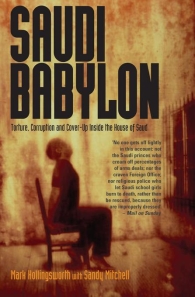Tariq A. Al-Maeena
I had been a long-term critic of the state of affairs at the national carrier we have all come to know as Saudia. My extensive association with them provided me with an insight very few other writers had access to. And watching how the airline floundered and stumbled from a position of strength was indeed painful, not just to me and not just to the many dedicated employees of the organization, but to the hundreds of thousands of passengers dissatisfied with their experience with this airline.
One of the most perplexing questions was how this airline with practically a guaranteed market failed to make any significant impact in the region. In previous decades, and with very little competition around, Saudia was indeed the big kid on the block. There was a very lucrative market to tap into. The decades of the late 70s, 80s and 90s witnessed a massive flow of passenger migration called the “teacher movement”, whereby hundreds of thousands of school and university teachers from Egypt, Sudan, Syria, Jordan and elsewhere were transported back to their homeland during annual vacations.
There was also the annual flow of Saudi and expatriate tourists leaving the country during the hot summer months for cooler places. With the generous surplus provided by increasing oil prices, many Saudis and their families began venturing outside their borders using Saudia as a vehicle to get them to their destinations.
The rising standard of living also led to the recruitment by Saudi households of hundreds of thousands of domestic workers from Third World countries, all of whom were initially required to fly on Saudia.
Then there were the Umrah passengers who would fly from different corners of the world to perform their religious rites. Added to this were the millions who flocked to this country to perform the annual Haj pilgrimage. Saudia, the primary beneficiary of this vast abundance of passengers from so many different sectors and at different intervals during the year, was indeed very fortunate and the envy of many regional carriers. At that time, there was no Emirates Airlines or Qatar Airways or Etihad. It was all Saudia.
The government too was very generous to the national airline, allocating a sizable portion of its annual budget to bolster the operating costs of this growing company. But in spite of all that the company was gifted with, organizational rot began to set in. By the mid 90s, complaints were rising against the carrier from frustrated passengers who targeted everything from poor customer services to the shabby appearance of the aircraft and technical delays. But all such complaints fell on deaf ears. Operating costs kept rising, new CEOs were appointed but there was no significant change.
The privatization scheme announced in the 90s by the late Prince Sultan, who was the country’s minister of defense at the time, failed to move forward for many years as many of the airline’s executives continued to drag their feet against such a move. They feared that it would end their tenure as recipients of the cash cow that came to be known as Saudia. The airline was literally treated as a country club by some executives, where promotions to higher grades were determined not on the basis of qualifications but by who knew and buttered whom.







